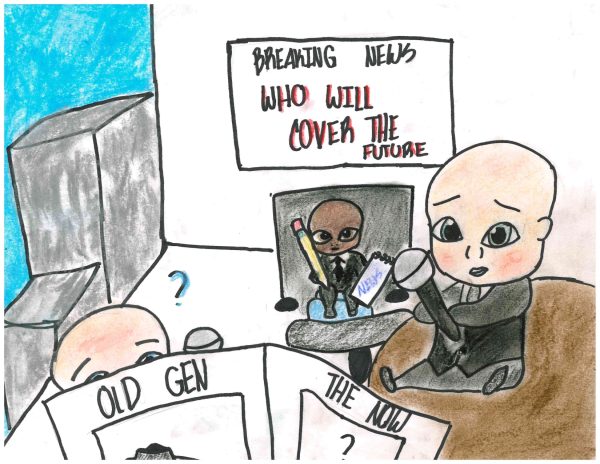SCOTUS sets partisan standard for nation
As the United States falls deeper into a partisan government, the Supreme Court of the United States must be evaluated for whether or not it is still opertaing as it was intended to. The bipartisan Roe v. Wade ruling is currently being brought to appeal, where it could be overturned as a byproduct of partisan politic.
Dividing the nation, the Supreme Court of the United States has set a standard for politics that many American citizens have decided to take part in perpetuating.
The partisan standard being set in one of the most objective, bipartisan institutions in the government demonstrates just how far the effects of polarization have reached in this nation.
The judicial branch of the government was set up by the founding fathers to have the least amount of political influence.
The Federalist Papers written by Alexander Hamilton was a pamphlet spread at the birth of the Constitution.
Federalist 81 highlights the limitations of the Supreme Court, assuring people that the judges’ positions are to rule on the constitutionality of cases and will have no power in terms of changing the letter of the law.
Yet in today’s political climate, the Supreme Court has been corrupted with partisan politics.
All of the measures taken by the founding fathers to protect the purity of the SCOTUS have been bypassed.
As time has gone on, Congress’s vote on the Supreme Court justices has begun to polarize along party lines.
In the past, many judicial candidates were voted for unanimously, a concept seeming foreign to our current climate.
As seen by former President Barack Obama’s judicial candidate Merrick Garland, justice seats have become a political tool that Democrats and Republicans alike utilize.
The effects of this have begun to take hold in our nation, most observed right now in the upcoming Roe v. Wade appealment.
The stress of the appealment decision is being felt throughout the nation, with pro-life movements hoping for Roe v. Wade to be overturned while pro-choice movements are hoping the SCOTUS holds up their precedent decision.
While women stress about their right to medical privacy and rights to their body, this decision will also have an impact on the way the Supreme Court is viewed throughout the nation.
Overtime, the Supreme Court has demonstrated a reliance on precedent cases.
According to Quartz, from 1946 to 2020, the Supreme Court has only overturned 161 cases out of 9,095 rulings, a rate of less than 2%.
Many in the nation expect the Supreme Court to uphold their previous decisions, ensuring the objectivity of the court.
The question is raised, “how is the interpretation of the letter of the law subject to if the interpretation is supposedly objective?”
Due to the approval of the appealment of Roe v. Wade, a case essential to protecting women’s rights to private abortion, the SCOTUS opens its doors to a legitmacey crisis.
The partisan corruption of the Supreme Court confirms many people’s fear of the extent of political party reach.







